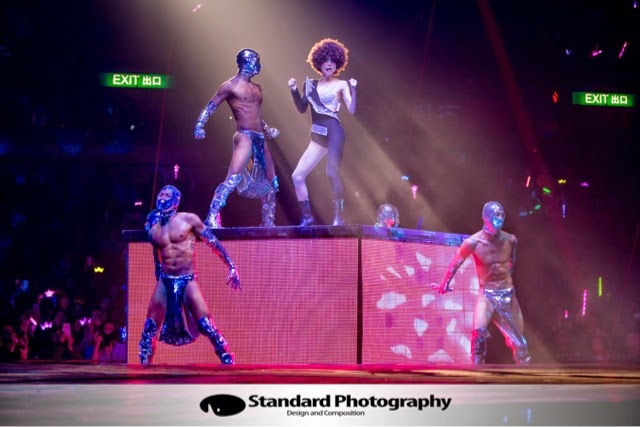The moment I stepped off the taxi, immediately I felt a blast from the past. The entrance to the Kowloon Cricket Club had colonial existence all over it. It didn't look Victorian or anything ancient but it reminded me of the final British colonial days of Hong Kong. Just to reinforce this feeling two Indian kids were fighting to get into my Cab which I was still in while the Indian mother was telling them to behave in Cantonese.
As I arrived into the main entrance reception, I was glad to see that the Boundary Café was somewhat modern and that the people weren't old crusty expats asking for bangers and mash and shepherd's pie.
Terry was the F&B manager and as he greated me he also gave me a quick intro to their establishment. Terry immediately gave me a sense that he was well seasoned in his profession and that he had a lot of tricks up his sleeve for the F&B business.
Soon after Ah Sing who was the head chef came and we started to shoot our 5 plates.
The team at the Cricket Club you can tell were an easy going team. Most of the staff there were pretty old and you can tell that they have seen it all and done it all. In a situation like that, you don't wanna take your time. Usually with smaller restaurants/establishments, they love when you take your time or try something creative, but with larger establishments or event corporate/chain restaurants this is not the case. Immediately I knew I had the keep the photo shoot swift as they brought me to a simple table with an ordinary white table cloth with ironing creases on it.
As I asked one of the staff for a table setup he returned with a stainless steal knife and fork with a wrinkly paper napkin that you'd usually find in a cheap diner. I knew immediately that my photos could not rely on a table setup an even if I requested for something more sophisticated, they wouldn't have been able to provide it anyways. At the end, I pulled it off. I found the wooden surface beneath the boring white table cloth to be usable and once again relied on selective focus and artificial window light made with my Godox Speedlight and my Godox shoot thru umbrellai.
Sometimes shooting for clients, you can't expect them to be super cooperative. Some don't know what is required and some don't understand photography. In the worse case, they just don't care and they just want you to get it done quickly so they can get on to the next thing. In any case, communication is important once again so that at least you have this information. Once you have this information you then have to quickly transform it to benefit your last minute preparation for your shoot.
In this case, my client just didn't know a photo shoot can be that complicated and so he just provided me with what he thought was adequate. He would have helped if I asked for more to assist my shoot, but you could tell that there would have been a lot more of scrambling around and in this case it would have been better to keep things simple.
Once again this proves that a good photographer is not just about his/her photography skills but also his/ her technique to get the information he/she needs to get the money shot.
























